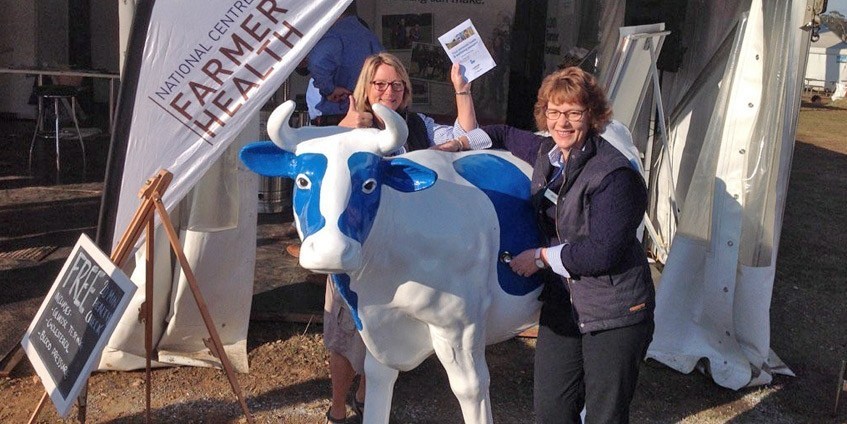
Despite continued higher rates of workplace injuries, earlier morbidity and mortality and challenging climatic environments, few formal programs focus on the health, wellbeing and safety of farmers. In the farming context, culturally competent professionals have a greater understanding of the unique hazards and conditions farmers face and therefore be able to obtain more detailed histories, make better diagnosis and provide more appropriate treatments, interventions and discharge plans.
This notion extends beyond health workers to professionals working in agricultural communities and in policy development. Deakin University’s Agricultural Health and Medicine unit, developed in 2010, developed to increase cultural competence and empower rural professionals to improve the health, wellbeing and safety outcomes of farming populations in Australia.
“Our workforce across Australia continues to grow as more and more health professionals complete their Graduate Certificate in Agricultural Health and Medicine,” said National Centre for Farmer Health Business Development and Industry Engagement Manager, Cecilia Fitzgerald.
“This, coupled with dynamic and effective collaborations with our industry partners, means together we are able to engage with rural communities, increasing their health literacy and make a real difference”.
Partnerships and collaborations reinforce the understanding that to engage rural communities and change the culture surrounding taking care of your health, wellbeing and safety requires consistent messages shared and spread by both the health and agricultural industries working together.
Throughout 2019, the Murrumbidgee Primary Health Network (MPHN), through the Australian Government’s ‘Empowering our Communities’ initiative, partnered with the National Centre for Farmer Health to deliver Health and Lifestyle Assessments to people impacted by drought across the Murrumbidgee region.
MPHN was one of nine Primary Health Networks to be funded under the Empowering our Communities initiative to provide additional mental health support to help farmers and rural communities to deal with the uncertainty, stress and anxiety of drought conditions.
“It was important to engage with activities that help build community capacity and foster long-term resilience,” said MPHN Chief Executive Officer Melissa Neal.
“Offering free health check-ups through the NCFH is one way people living in drought affected communities can engage in a fairly neutral and private way with a health professional and receive a specialized assessment of their general and mental health.”
The success of these collaborations comes as a result of the understanding that to engage communities and change the culture surrounding taking care of your health, wellbeing and safety requires consistent messages shared and spread by both the health and agricultural industries working together.
National Centre for Farmer Health Agrihealth professional, RN, and Agicultural Health and Medicine graduate, Amelia Cottrell from NSW is one of a team of nurses using their expert understanding of Agricultural Health to conduct the health checks across the country.
“The National Centre for Farmer Health has helped me fulfil my passion to improve the health and wellbeing of rural communities through conducting HLA’s and educating participants of the health risks associated with the Agricultural industry and to make a positive change to farmers lives,” said Amelia.
Fellow graduate, RN and farmer, Jeanne Van Der Geest Dekker from Victoria also understands the importance of effective engagement of communities in their health, wellbeing and safety.
“Coping with stress on farm has its unique challenges,” she said.
“It’s often isolating with many factors affecting stress on farm – for example drought, fire, floods and economic downturn. Many have survived years of persistent stress but having an awareness of stress and how it manifests into physical, emotional and behavioural symptoms is key to dealing with stress. It’s about finding the balance.”
Victorian farmer Logan Symes received a health check in 2019, afterwards saying: “If I didn’t get a free health check from you guys, I wouldn’t have discovered that I had type one diabetes at an early stage”.
To learn more about the Graduate Certificate of Agricultural Health and Medicine and our partnerships and how to apply for July 2020 commencement visit www.farmerhealth.org.au.
View article: 2020-06-15: Working together with a shared understanding: growing workforce putting farmer health in the spotlight – Partyline
|
|